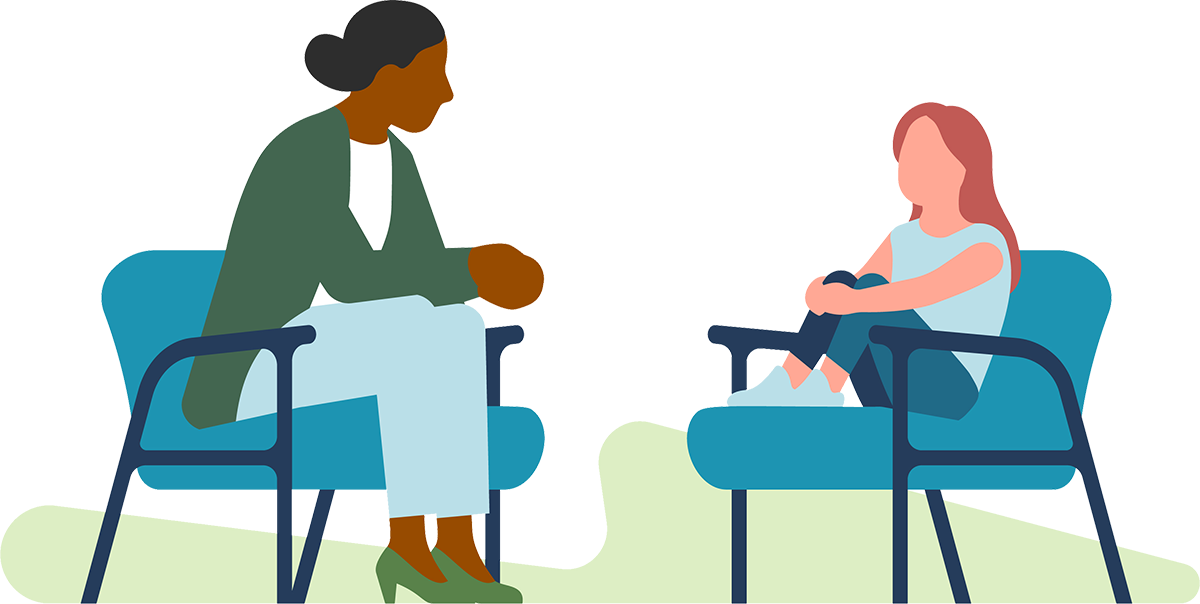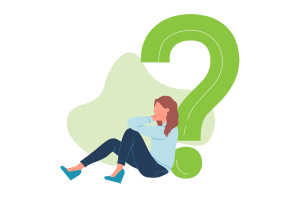Our friendly team are here to help you. We are here as someone to talk to, and support you in your own time and space.
If someone has hurt you, or you’ve been forced to do things that made you feel uncomfortable at any point in your life, we understand how you might be feeling.
If you have experienced rape, sexual abuse or sexual exploitation, you can get support from one of our specialist Children’s Independent Sexual Violence workers (CHISVAs).
We are independent from the police and social services, and can listen to you, support you and answer any questions that you or your family might have.
If you live outside of the Leicestershire or Rutland area, please contact the National Domestic Abuse Helpline on 0808 2000 247.

What support can I expect from the ISVA service?
A CHISVA is someone who is independent from the police and social services and can listen to you, support you and answer any questions you or your family may have.
Examples of Sexual Abuse
Please Remember:
- It is not your fault.
- You will be believed.
- You are right to tell someone.
- You can get help, you are not alone.
- It can happen to both girls and boys.
- It can be someone you know or a stranger.
- Sexual abuse isn’t always ‘full sex’ it can include touching, kissing, oral sex or anything sexual.

Freeva’s Sexual Violence Support service has been independently accredited as meeting the Quality Standards for Independent Sexual Violence Advisor Services and gained LimeCulture’s ‘Quality Mark’ in 2019.
All ISVAs receive specialist ISVA accredited training to work with survivors of sexual abuse to enable them to support clients effectively. The independent company LimeCulture provides a programme of accreditation and monitoring against Quality Standards to ensure overall quality and consistency of service provision.
Frequently Asked Questions
The aftermath of sexual assault can be traumatic and confusing. Many people share the same questions and concerns. Here are some frequently asked questions about our ISVA Service, what happens if you decide to report, the court process and includes information for family and friends.
What is an ISVA?
For further information, please download our leaflet here.
I don’t want to report to the police, can I still receive support?
What happens if I report? Will I have the same police officer throughout the course of my case?
There can be occasions where officers can change, for example if they are going on maternity leave. All specialist officers are trained in this work so the level of support will not change.
I haven’t heard from the police since I did my interview?
I have never reported before, I am scared about the process.
For further information, please download our leaflet here.
How long after I report will I get a call from the ISVA service?
How long will the police/court process take?
Can I see the court before the trial?
Will I get to see my barrister if my case goes to court?
I don’t want to see the perpetrator in court, is that possible?
What can friends and family members do to support survivors of sexual abuse?
How to Support Others →
Reporting to the police
You do not have to report to the police to get support from us.
If you don’t want to report, we are here to support you with any emotional needs, guidance, safety planning and help you access any more relevant information.
If you are considering reporting to the police, we can help you understand how the criminal justice process works. We can talk you through what will happen if you do report to the police, what will happen if you report anonymously or the importance and process of forensic DNA retrieval.
*There are times that on our Helpline and in all our Domestic Abuse services, we will report to the police, with or without consent, if the risk to a client, child or third party, is significantly high.
How To Get Help
- Call: 0808 802 0028
- Text: 07860 923051
- Monday to Friday: 8am-8pm
- Weekends & Bank Holidays: 10am-4pm
What You Can Expect From Freeva
At Freeva, we provide support to anybody who has experienced domestic violence, rape and/or sexual assault, living in Leicester, Leicestershire and Rutland.
Through this service, we help children and young people, between the ages of 5–18 years, understand and process any traumatic experiences they have had, and aim to provide them with the skills they need to feel empowered to make independent life choices.
Our specially trained team provide comprehensive clinical assessments, an action plan, and 6-12 weeks of support sessions. Where clients are engaged with the criminal justice system, we work within CPS PTT (Pre-Trail Therapy) guidelines.
NSPCC/Childline
Once you’ve reached out to us, a member of our team will be in contact within 24 hours. If you need help in this time, please call Childline or chat with a Childline counsellor online, they are available any time day or night.
You don’t have to tell them your name and all calls are free. They will listen to you, talk to you about what is happening and help you decide what to do next.



